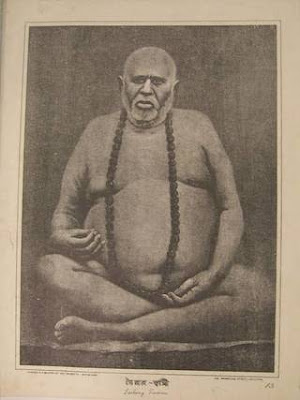Bangon Pinoy!
“I find Filipinos very hardworking. Your women especially are extremely strong”. He meant in mind and spirit( well, definitely, in body too!). These were the words my husband Rahul told me after he lived in the Philippines for almost four years. One of my colleagues looked up the UNDP numbers today and said “It’s wonderful to see the almost equal opportunities that are given to the women in your country”.
Women. Here in India, there are still places where women do not have access to education nor employment. Sonograms are not allowed here, because it is still a pervasive practice in the mostly rural areas that once they discover that they are carrying a female fetus, they abort them right away (which is legal), and if they cannot afford to do that, they have female infanticide. They throw them in the river for the little baby girl to drown or feed them water with lentil grains so they choke to death. They simply cannot afford to raise dowries for their marriages nor suffer the shame of them turning out to be spinsters due to lack of money to pay the groom for the arranged marriage.
In the north you won’t find women in the shops (it’s a rarity), you have to deal with men to buy your lingerie. They shout out your bra size in the street to cajole you of their accuracy in their business. Women are kept in the house to cook, to clean and to take care of the young. They eat after the men have eaten and generally walk behind them. They do not argue with their husbands especially in front of others. That is, because the husbands were ordained to be gods. This is mainly changing in India’s metropolitan cities now. The change is slowly crawling to the outskirts as well.
Rahul is amazed when he hears news of my friends, relatives or OFW’s on TV treading the Saudi terrains, crossing deserts, yielding border wires alone in some foreign land – and a woman at that. Legal or illegal. He said, we risk to save our families from hunger and for education. He was most astounded with our helpers at home. He witnessed three helpers with us, some visiting from years back and some with us temporarily and one with us presently. He saw how one of our helper would come with bruised cheeks over and again over a period of months. How she fought to report her husband, and how she fought for her children and still – RISE ONCE MORE. Another one had to put all her children to school with an unemployed and drunk husband who gambled their only land away, and then still – RISE ONCE MORE and move on. “Can anything ever knock a Filipina woman down?” he asked. He hears of those classic stories of Filipinas fighting back in the Middle East and Singapore. They were trained to chop “chorizos” back home after all! These stories left him open-mouthed. Many of us commit suicide for a broken heart or die for love, he said, but Filipinas won’t yield to a husband who is a womanizer and still will fight for her rightful place – and take him back or leave him to suffer. I never saw it that way, but I laughed hysterically! After all, he has a point. “Palaban tayo!”
Education. Literacy rate is high. The quality of education is an altogether different ball game. At least we mostly know when to use “is” and “are”. You’ll be surprised how many Filipinos are shocked when they hear native speakers confuse both! Both our boys and girls have access to education. We still have a long way to go though. I have seen classrooms in the squatter areas in Manila where it is almost unimaginable to discover that there are places at the heart of the metropolis without access to electricity and running water. This was during my field work for an Educational Psychology course in Diliman (UPD). Once for Field Psychology in Miag-ao (UPV) we treaded terrains in the mountains of Iloilo to look at insurgency and exhumation of bodies of rebels. I saw how many schools didn’t have desks much less walls. They had a half day class and four grade levels in a classroom only when a teacher hikes to their place on that blessed day. But other than foreign aids and UN organization, we have mushrooming NGO’s taking care of our own. We have many dedicated health workers and teachers in the barrios to sacrifice themselves to give hope to the future leaders of our country. I have seen these as well.
Working with my father for years in Community Development opened my eyes to how much is there to be done. I felt it is his greatest gift to me. That is, tagging me along nooks and corners and highlands of the countryside and showing me the realities of life. It was also in these places that I felt accepted, valued and loved the most. College in UPV stretched the years of my community connection when I enrolled myself to a few community development courses. I had mentors who nourished my love for people. I remember a huge truck from the mountains with “once government armed rebels” coming to take chairs and tables from our home in Roxas City to start a school – and greeted me warmly and with lots of affection. Volunteering for that rice research program helped ground me further when we had to sleep in their huts and swim and wash our clothes in their rivers with gas lamps and fireflies to light our evenings. Coming to this once missionary Christian International School kept the link. We have regular weekend Social Experience programs with orphanages, Home for the Aged and the local people. I had my few shares, but I had my share that continually reminds me of my humanness.
“The last thing you should do to the poor is to join them”. I believe in this. I believe in abundance. I believe in sucking the marrow out of life, however one defines it. I am not bitter against the outrageously rich materially. I once was. But the Universe heard my call for understanding and I was brought here. I am surrounded with almost unbelievably affluent students who come and attend my or my husband’s classes everyday. One of them charters a chopper back to Singapore for a weekend. Some take world tours twice a year, and with that, brings home/back to school with them photos from the Marriot hotel or the Hilton’s. And these are amazing wonderful human beings! They also reach out, can be humble and wise and can have their share of poverty. That is, of loneliness and seeking to belong and have ample personal attention. And then, ironically, I also felt loved and accepted and valued amongst them. It felt like a full circle.

Going back, I am sincerely delighted at the material success of many of our people. Rahul once enrolled in AMA. He told me that every single one of his classmates is financed by a relative abroad until graduation. Education is a great tool for equality and empowerment. It is one of the main agents of social mobility. Thankfully, we do not have caste systems but we still have our great divide of the rich and the poor. However, what greatly saddens me, is that oftentimes, many of these have been made possible at the expense of a united family (physically). I wonder how can a country move forward when it’s basic fiber are not intertwined together?
In many levels, we are abundantly rich. We don’t stop until each and every sibling graduates from college. We don’t stop until we still have another nephew or niece to put to school. We don’t stop until our aged parents gets to have a land and a house they can call their own. We rise to every occasion for the family. We don’t stop until everyone settles down. Like our other Asian neighbors, we are , after all, a collectivist society where we value interdependence. It is our all pervading Bayanihan in familial terms.
I remember during our high school reunion, a classmate who became a successful civil engineer announced job vacancies in his construction. With humility and affection, faces lit up as the enthusiasm of some of our classmates grew in hope that they will find employment. It included the joy of being there for each other, even for those who did not need it. In that class of ’88 after 20 years, we had lawyers, engineers, accountants, businessmen, nurses, teachers, housewives, tricycle drivers, barbers, architect, showbiz celebrities, marines, farmers, many OFW’s (Overseas Filipino Workers), an airport porter and the unemployed. We all danced in that dance floor celebrating the equality, camaraderie, affection, respect and familiarity we once shared and after 20 years still shared. It was a small urban rural public vocational school. No one there showed off their success nor bowed their heads down, but there was only toasting, humor and celebration. We were Pinoys at our best, we knew how to celebrate life with drinks and music – and there was, of course, Karaoke!

Despite our collective struggles and collective pains, we keep our collective spirit of perseverance and resiliency. Coming from UP, one thing I am certain of is that – Idealism is not dead. And I believe that action springs from a great thought, is fueled by an audacious spirit and embraced with an open heart -- and that sounds FILIPINO to me.
photo credit: Joseph Macarilay

